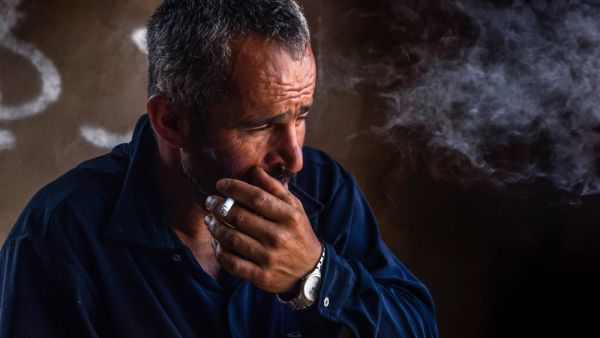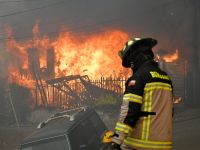Living in a two-room apartment in the slum of Kobbeh in Lebanon’s northern city of Tripoli, Nabiha Bishtani, a widow and mother of four young children, relies completely on charity and donations to feed her family.
“I am registered with four different charities that provide me with some cash and food. We have no income since my husband passed away two years ago. Life is so difficult we are barely surviving with the assistance,” said Bishtawi, 43.
In Lebanon, people are growing more desperate by the day. The terrifying combination of an unprecedented economic and financial crisis, rampant unemployment, political instability and the COVID-19 pandemic with its subsequent lockdowns is posing the biggest threat to the country’s stability since the end of the 1975-1990 civil war.
Trade has historically helped to fight poverty. But with digitalization & reshuffled global value chains post-#COVID19, developing countries face new challenges.
— UN_Lebanon (@UN_Lebanon) February 2, 2021
How can they stay in the global trade game?
Find out from the .#WorldEconomyReport https://t.co/GMmb2b7xPN pic.twitter.com/188gSXUhpI
Mustafa Dallal, 75, another Tripoli resident without income or a retirement pension, also depends entirely on a local NGO — Sawa Mninjah, which translates “Together we succeed,” for his living.
“My wife and son were killed during the civil war, my parents died. I live all by myself. Sawa Mninjah provides me with lunch and dinner meals. They gave me clothes, shoes, blankets and even medication,” Dallal said.
“Poverty is nowhere deeper than in Tripoli. Despair and sadness is written all over people’s (faces). I am an old man who feels abandoned and dumped by my government just like a discarded wrecked car,” he added.
Overwhelmingly Sunni Muslim and home to over 700,000 people, Tripoli has suffered years of neglect and has been plagued by violence and extremism. Recent riots triggered by a strict round the clock lockdown to contain rising COVID-19 cases saw protesters smash cars and banks and set government buildings on fire.
Several people and security members were injured in anti-riot clashes and at least one protester was killed.
Even before the crises, almost 55% of Lebanon’s informal workforce depended on day-to-day income. The lockdown deprived hundreds of thousands of extremely poor families of the means to put food on the table.
According to the World Bank, more than half of the Lebanese people have fallen into poverty and at least a quarter into extreme poverty due to the lingering economic and financial crisis deepened by the pandemic.
Reducing inequality requires transformative change!
— UN_Lebanon (@UN_Lebanon) February 9, 2021
Greater efforts are needed to eradicate extreme poverty & hunger &invest in health, education &decent jobs especially for young people, migrants & other vulnerable communities.
More info: https://t.co/dahC3NjILb #GlobalGoals pic.twitter.com/Tbpu7wTL1C
“Things are only getting worse day by day. Our sense is that the country is falling apart and there is a need for urgent intervention by the Lebanese political system to focus on very critical structural reforms to bring some stability to the country. Without that we expect further increase in poverty and unemployment,” cautioned Saroj Kumar Jha, regional director of the World Bank’s Mashreq Department (Lebanon, Iraq, Syria, Jordan and Iran).
“The economic and financial challenges in Lebanon are self-inflicted due to the lack of any concrete policy by the government in trying to address these challenges,” Jha told a zoom press conference.
He said the World Bank approved an emergency social safety net project for Lebanon designed to support 147,000 extremely poor households, including 87,000 children who belong to these households.
“The program will be administered by the World Food Program and closely supervised by the World Bank and it will be subject to independent monitoring and external audit,” Jha stressed in a clear sign of mistrust in the government’s integrity.
Things are bound to worsen as Lebanon’s economy shrivels. The currency has lost nearly 80% of its value to the US dollar and unemployment has risen to more than 35%.
Divisions among Lebanon’s sectarian leadership hamper attempts to address the crisis. Iran-backed Hezbollah, which dominates the government, is not keen on supporting plans to seek help from the International Monetary Fund (IMF). IMF support will likely mean cuts in the public sector and cause squabbling among political factions.
“With 80% devaluation of the Lebanese pound and 130% inflation, the major part of the middle class are becoming poor, and the poverty of the extremely poor is becoming more severe and they might reach the point whereby they are not able to procure food,” said Adib Nehme, regional advisor at the UN Economic and Social Commission for Western Asia (ESCWA) on poverty.
“We are at the core of social and economic disintegration and collapse. The majority of the population is suffering from a severe deterioration in their livelihood. Poverty, demographic density and the feeling of being marginalized, discriminated against, and oppressed is an explosive combination that could lead to a social explosion,” Nehme said.
He warned that Lebanon was heading towards more social unrest, political instability and insecurity as people would resort to stealing basic goods and remote areas become legal no-man’s lands.
Diana Karameh, an activist, founded Sawa Mninjah in 2011 to sponsor the education of poor children in Tripoli. But since the onset of the economic crisis, she has set up a restaurant offering 500 free meals a day.
“We also installed fridges in different parts of Tripoli where people can grab meals and opened a mini-market where they can shop for free. We try as much as possible to provide them with what they need. Almost 70% of Tripoli’s population is without income or have negligible income,” Karameh said.
This article has been adapted from its original source.








